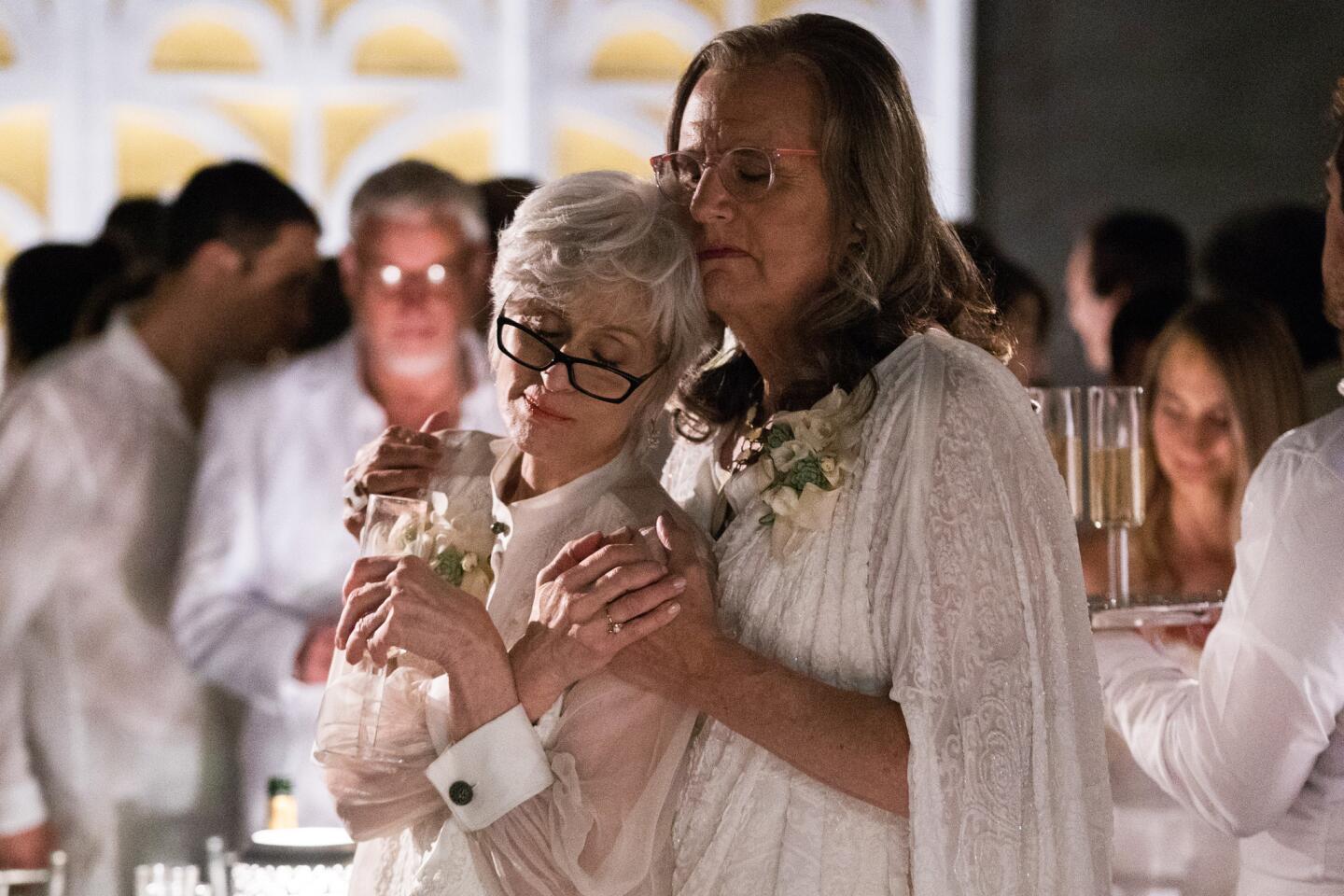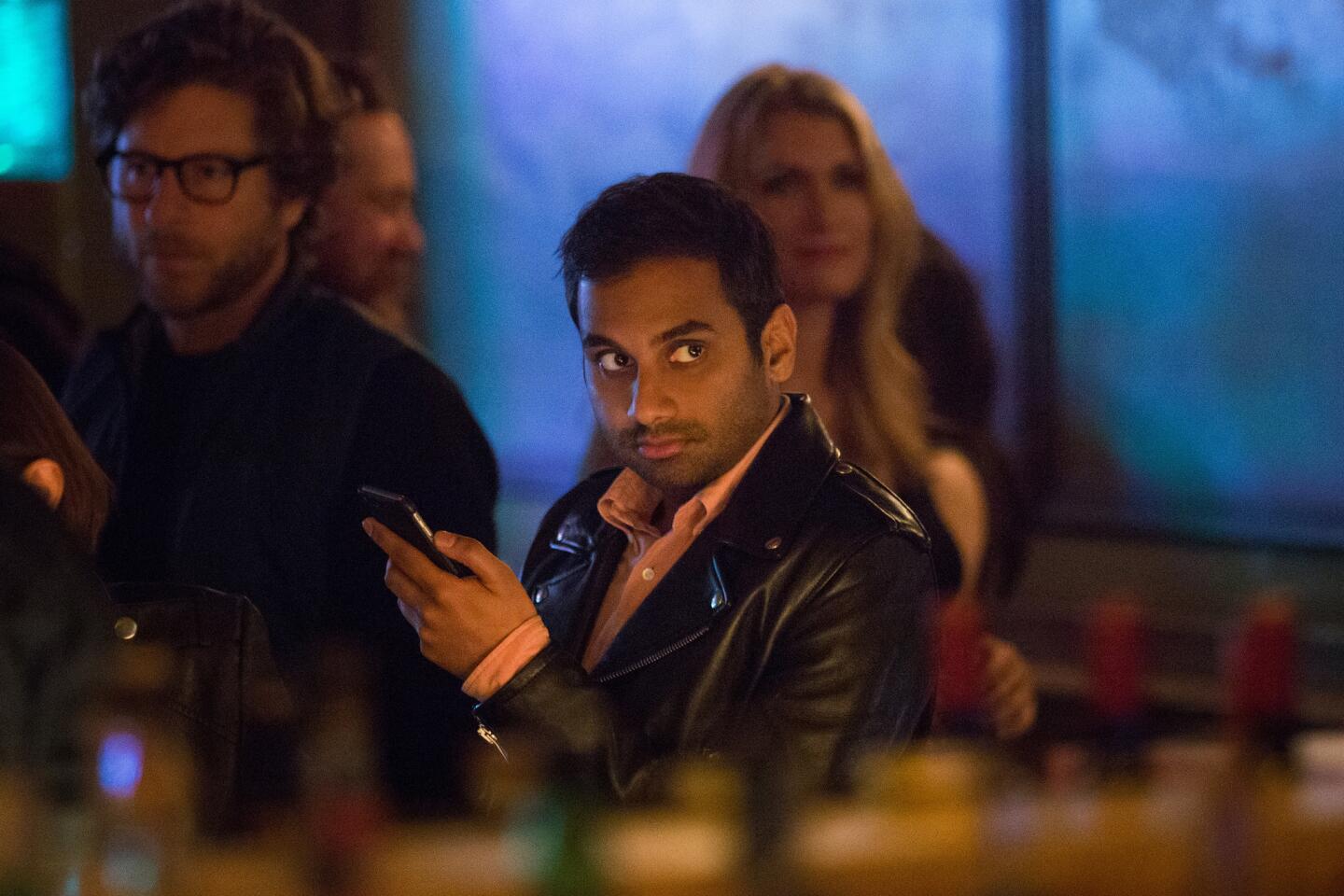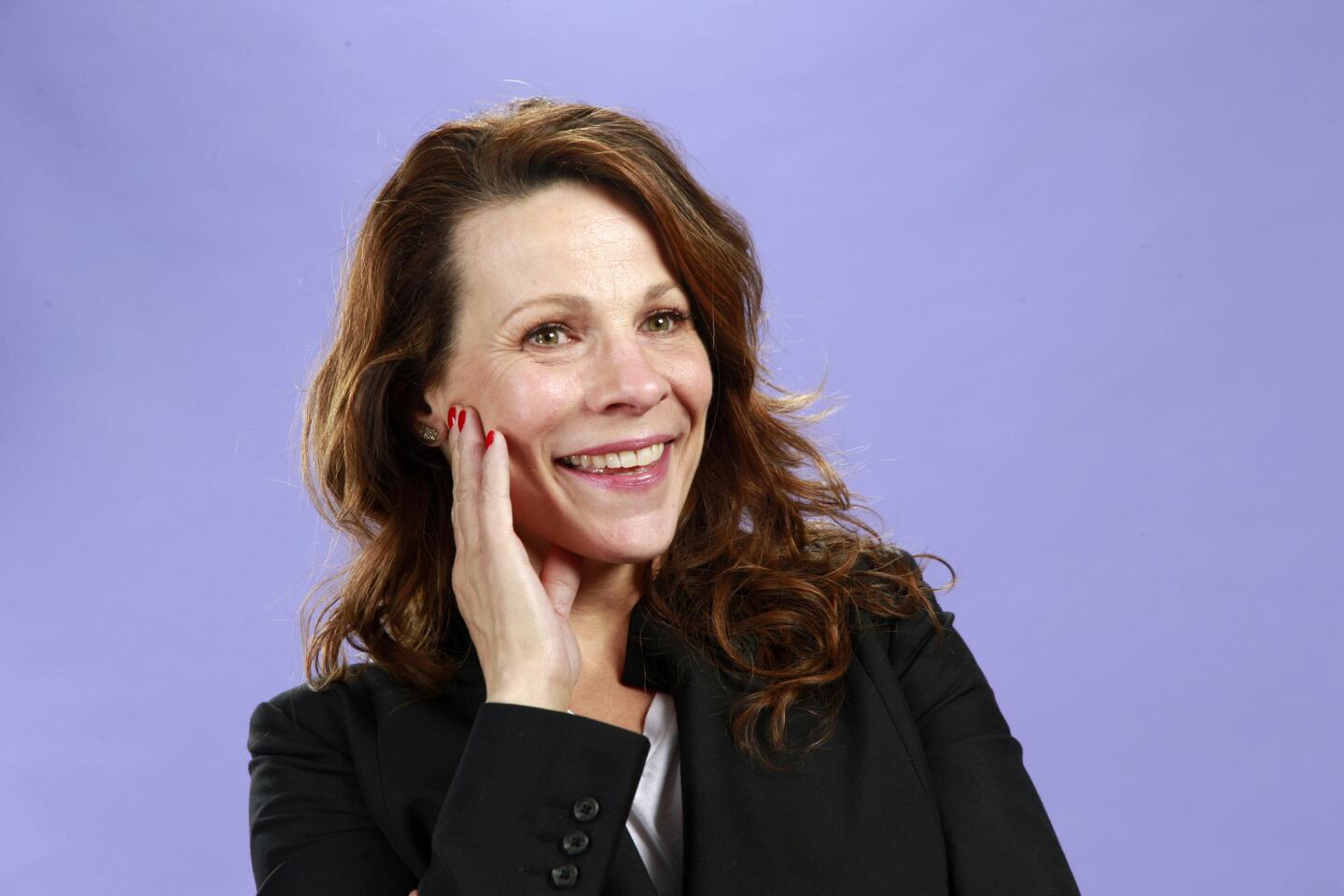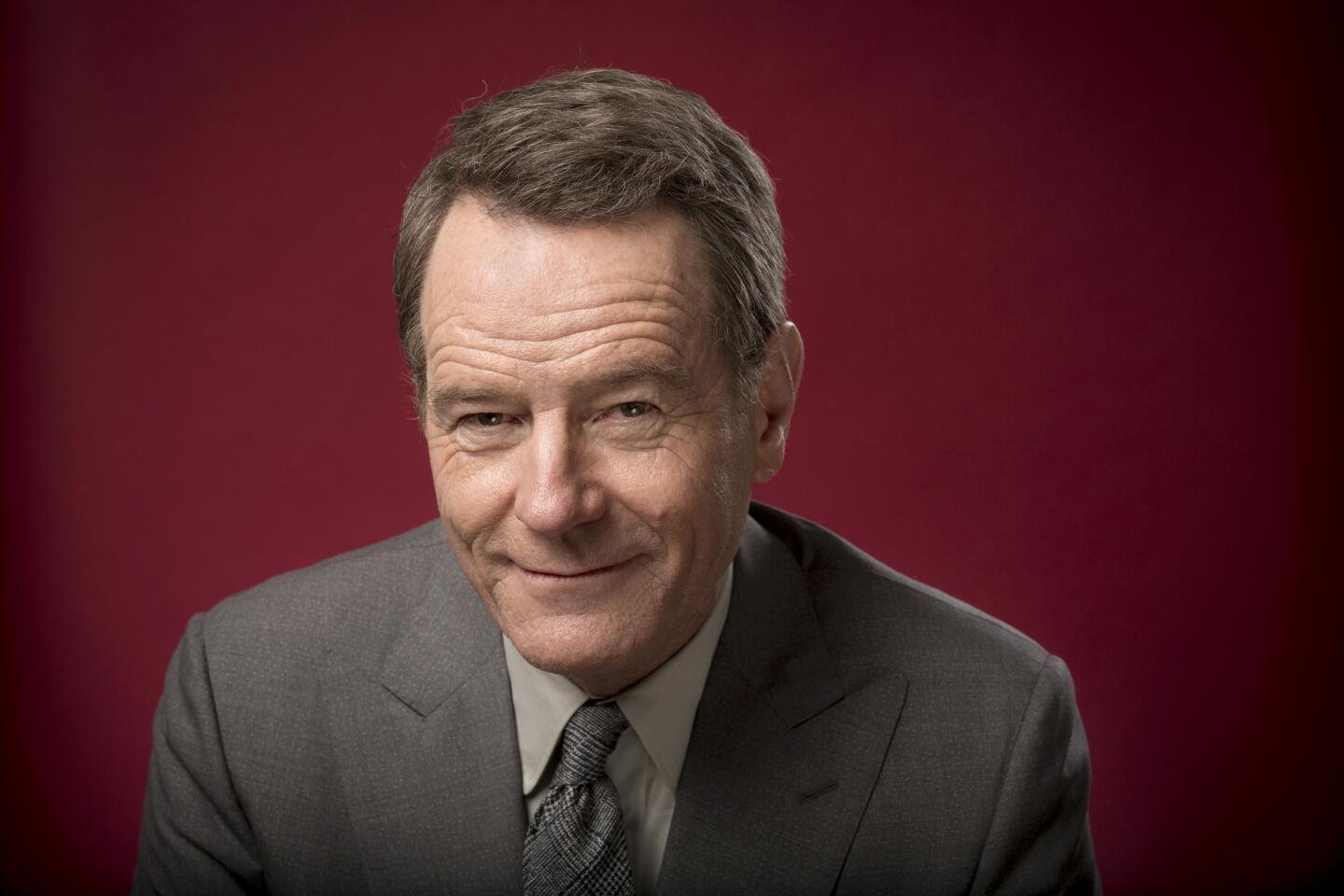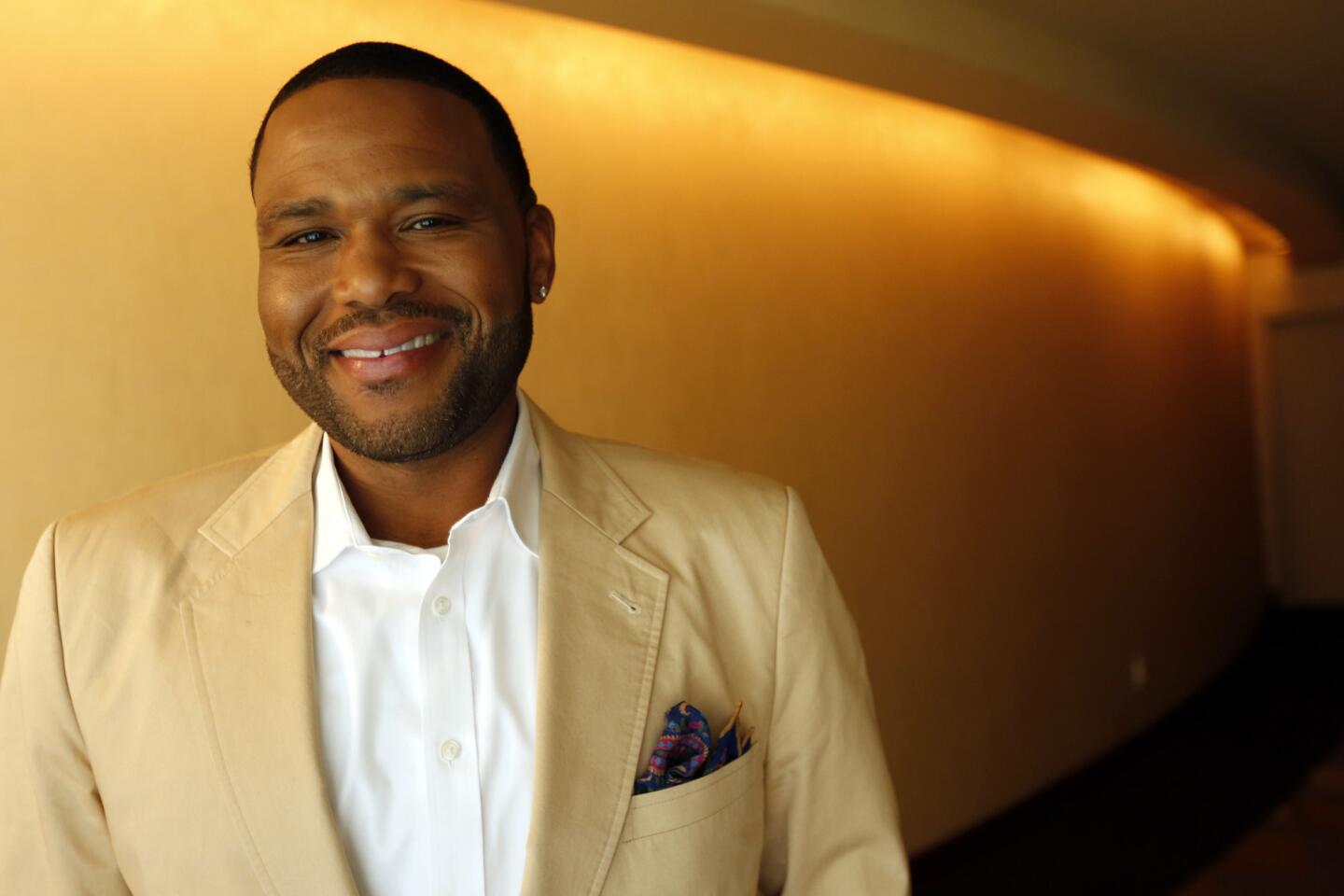Analysis: Emmy nominations reflect the moment we are in — political, divided and distrustful
- Share via
The Emmy nominations are always “political,” but they’re rarely political.
While many non-artistic factors may affect the anointing of a chosen handful with the word “best,” the nominations, at least as a group, rarely reflect the sociopolitical concerns of the American citizenry.
Until this year.
In the midst of a presidential race bristling with divisive issues and distrust, the Television Academy singled out a large number of series that took on that distrust and those issues in ways dramatic, comedic and deeply human.
Political TV came in two distinct forms this year. The multi-nominated shows with a more explicitly political bent--“House of Cards,” “Mr. Robot,” “Veep”—reflect a near-hopeless cynicism toward actual government. Other nominated series took on issues rather than governance --“black-ish,” “The People v. O.J. Simpson,” “American Crime”— and directly addressed complicated themes, especially those of race, in a way that is, if not always hopeful, at least productive.
Likewise, series anchored by the once-rare strong female lead and her experience filled virtually every list, creating a long and refreshingly varied arc that stretched from “Transparent” to the increasingly female-centric “Game of Thrones,” recipient of the most nominations, 23, including three in the supporting actress category.
As critics and pundits stack overdue honors against baffling repeats and perceived snubs, industry politics will no doubt fuel the conversation for days—what was the academy trying to say by completely dropping “Orange Is the New Black”/nominating “Comedians in Cars”/overlooking (fill in the blank).
But the real message of this year’s nominations is remarkably clear: The best television turns vague social notions and ill-defined personal feelings into vividly specific stories and increasingly, it does it in real time.
John Ridley’s “American Crime,” which uses a group of core performers to tell a different story each season, is, perhaps, the most pointed in its attempt to unravel the snarled threads of American identity. Where last season’s story dealt more particularly with racial stereotypes and police profiling, this season shifted to the issues of sexuality and the more subtle but just as destructive tyranny of school, friends and family.
Intentionally approaching a central incident from many points of view, “American Crime” honors each character, even as the story makes clear their (often many) flaws. If there be monsters, and monstrous violence, they are the product of many things; in each narrative, closed minds, stifled communication and apathy in the face of self-righteousness are the real American crimes.
Kenya Barris’ “black-ish” takes a similarly polyphonic approach, albeit comedically and using three generations of a single family, whose members all have different ideas about what it means to be black.
Defying both the encroachment of cable and the threat of “the sophomore slump,” the second season of “black-ish” was even stronger than its first in part because it took on tough issues with confidence that never even came close to preachiness. Opening with a deconstruction of the n-word, the season later used a fictional case of police brutality to spark a multi-generational, wide-ranging and beautifully performed conversation about racism that should probably be on a 24-hour loop right now.
The same sort of inclusive sensibility allowed the re-examination of several historical figures through a wider lens. In “The People v. O.J. Simpson,” Sarah Paulson’s Marcia Clark is portrayed as a victim of sexism as much as racial oblivion. The overwhelming ambition of Bryan Cranston’s President Lyndon B. Johnson in “All the Way” is self-centered but also tied to his unique ability to legislate a revolution. In “Confirmation” Anita Hill (Kerry Washington) bravely faces the impossible: Telling an uncomfortable truth into the screaming wind-tunnel of racism, sexism and the U.S. Senate.
Complete list of 2016 Emmy nominees »
The more directly political series seem almost retro in their acceptance of conspiracy and incompetence. But God, or Big Brother, is in the details and the details are headline-fresh.
“Mr. Robot” is a fever dream of conspiracy and fermented idealism in which conglomerate capitalism has rigged everything including “social” media; the new barricades are manned by coders. “The Night Manager” may be classic John le Carre: A few noble individuals fight a disintegrating political system. But Hugh Laurie’s modernized entrepreneur of terrorism is queasily current.
Even the deliciously jaded presidential politics of “Veep” and “House of Cards” took semi-serious twists: First Lady Claire Underwood (nominee Robin Wright) tore up the “help-mete” guide, and the country was spared the inevitably disastrous presidency of monomaniac Selina Meyer (Julia Louis Dreyfus).
Which, ironically, may make “Veep” the most truly hopeful show of the bunch.
Watch the Emmys with us on Sunday! We’ll be live blogging all day, all night at latimes.com/emmys.
MORE:
Watch: The 10 biggest Emmy snubs
With O.J. Simpson nominations, Emmy voters hold up a period-piece mirror
Yes, HBO dominates this year’s Emmy nominations, but FX is closing in and so are streaming series
Emmys 2016: Updates, reactions, videos and commentary
The complete guide to home viewing
Get Screen Gab for everything about the TV shows and streaming movies everyone’s talking about.
You may occasionally receive promotional content from the Los Angeles Times.
